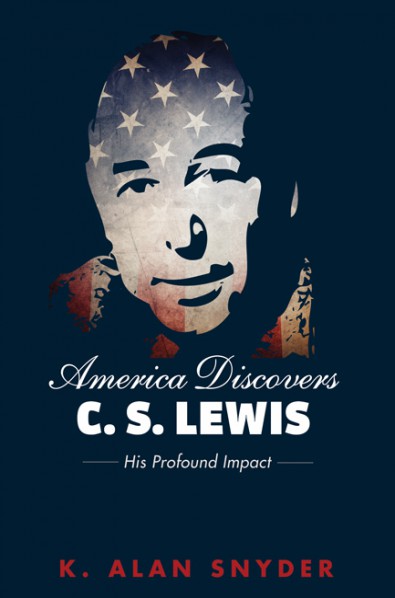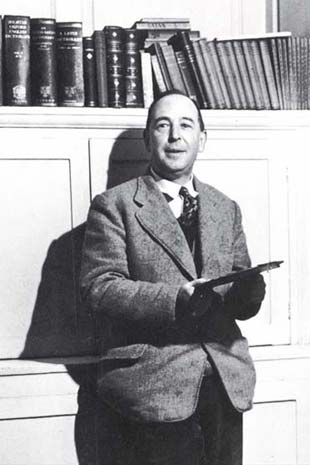It’s hard for me to believe that my book, America Discovers C. S. Lewis: His Profound Impact, was published more than five years ago. I’ll always be grateful for the sabbatical I received in 2014-2015 that allowed me to concentrate on Lewis and develop the book. Once I did the research, the writing practically flowed.
Gratitude also goes to the Marion E. Wade Center at Wheaton College for all the help provided there. Not only did I receive guidance, but through the Wade I was able to connect with Walter Hooper, one of the diminishing number of people who knew Lewis personally. When Hooper died in December 2020, it was as if a generation had passed with him.
The Wade also worked in tandem with me to publicize and collect testimonies from Americans who have been impacted by Lewis. One of my chapters deals with that survey. A special portion of the survey was the open-ended invitation to share more personal experiences reading Lewis—how Americans’ lives were affected by the works that continue to instruct and inspire so many today.
A number of respondents credited Lewis with halting their slide into unbelief while in college. “Lewis sustained me through years of doubting my faith in college,” wrote one. “I’m not exaggerating to say that Lewis re-evangelized me when I might have otherwise abandoned my childhood faith.” Still another remembered,
When I was an arrogant college student who believed only weak and/or stupid people believed in Christ, Lewis showed me beyond question that faith could make sense even to an intellectual. He awakened my spiritual imagination with his fiction and persuaded my reason with his nonfiction. He also gave me a grounding in traditional Christianity that facilitated my later conversion to Orthodoxy.
Another respondent referred to Lewis’s “Holy Spirit baptized intellect” and lauded his “ability to frame the issues in a succinct way and then address them with such extremely critical thinking skills.” Those testimonies centered on how Lewis restructured thinking. Yet beyond the purely intellectual appeal, Lewis and his writings also have impacted the emotions and encouraged Christians in their various struggles.
I was particularly touched by one woman who felt she wanted to share her personal struggles: “When I walked away from my Christian faith during my twenties and early thirties, Lewis was one of the few Christian authors I still trusted and could stand to read,” she wrote. “I was grieving, angry, and depressed, and when I reread The Chronicles of Narnia, the hope that shone through them was almost painful.” Yet it was a good pain. “Emotionally, it was as though a frozen and numb part of me began to regain feeling. Some years later, a passage from The Screwtape Letters was instrumental in helping me realize that I’d been angry at the church when, in fact, the church had been my truest friends and best support through very dark days.”
Narnia, naturally, has impacted those who were first introduced to Lewis as children. One comment might express how many children have felt after reading those books: “As a kid when I was sick I used to pray, ‘God, I don’t care if I die as long as you take me to Narnia.’”
There was one respondent, though, who went into greater detail on how Narnia affected, and continues to affect, her. “Perhaps the most thrilling liberation of being a child in Narnia is Lewis’s assertion that children can understand complex things,” she began. Too many books and TV shows, she felt, oversimplified things and taught children “to think simplistically.” Yet upon entering into Narnia, one could find the kind of complex thinking that went into Lewis’s more apologetic works—and that, she believed, was what children needed. She discovered Aristotelian logic from Professor Kirke and understood Plato much better when residing temporarily in Aslan’s Country.
I love Narnia not only because I find things to ponder in it, but because it taught me how to ponder. C. S. Lewis created a complex world, and it taught me to think complex thoughts. I am content in Narnia not because I am comfortable, but because I am uncomfortable. It stretches me—my leadership, my character, and my understanding. It acknowledges not that I am a grown-up, but that I am a person, and therefore capable of maturity regardless of my age.
And finally, another respondent loved the scope of Lewis’s writings and what one could learn from him regardless of the genre.
Narnia tells of a lion whom you fear, but is good—we should fear God, but love God. Screwtape shows how devious and unrelenting (even in the face of conversion of the subject) Satan can be in the temptations of a person/Christian. In Mere Christianity, Surprised by Joy, “The Weight of Glory,” etc., Lewis expresses truths about Christianity in practical and meaningful ways that are easy to understand and remember. I love the variety of his writings.
I echo that perspective. It doesn’t matter whether you are reading Lewis’s apologetic works, his fiction, his children’s books, or even his literary criticism—you come away with something of substance, something that makes you think more rationally and/or feel more deeply.
For the whole story found in my book, just go to its page in Amazon.


